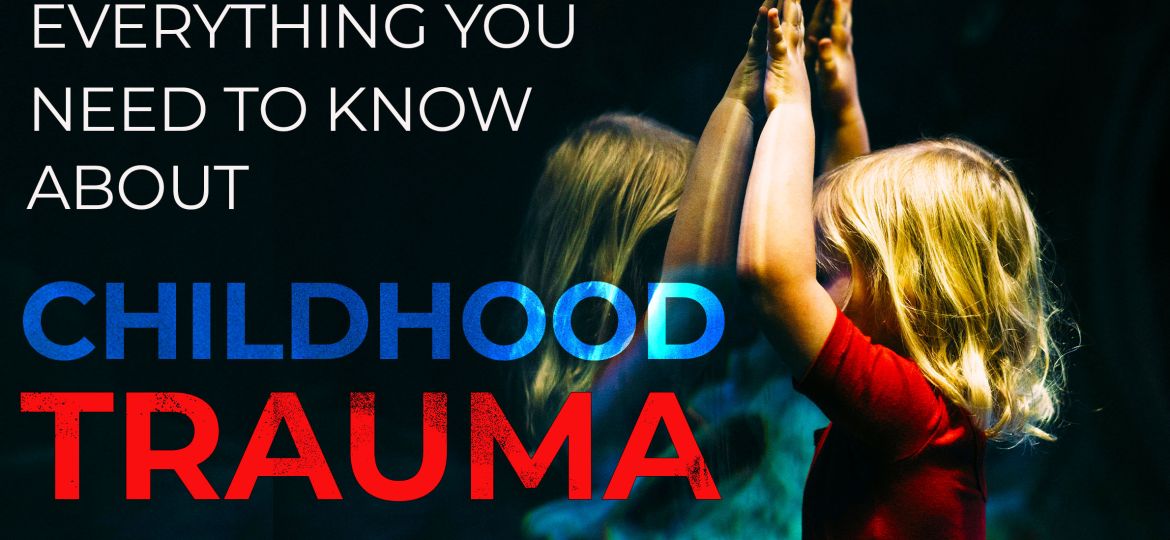What is Childhood Trauma?
Childhood trauma, also known as adverse childhood experiences (ACE), is a form of mental distress that originates from an event, or events, that took place in a person’s childhood (ages 0-17). This can range from witnessing parents fight, to a lack of stability to intense physical or sexual abuse. No matter the root cause, the effects of unresolved childhood trauma can be detrimental to the development of the individual experiencing the trauma.
Although the word is often used, what does trauma mean? According to The National Child Traumatic Stress Network, trauma results from an event that is frightening, dangerous, or violent that poses a threat to the person’s wellbeing. It is important to understand that trauma can stem from experiencing an event or witnessing something occur. Either experience can create numerous adverse effects that can manifest themselves in different ways.
Types of Childhood Trauma
There are many types of childhood trauma and an innumerable variation in what a traumatic event can look like. Although this is by no means an exhaustive list, here are some common categories:
Sexual Trauma: Sexual childhood trauma often results from a sexual interaction between a child and another person (usually a trusted adult).
Physical Trauma: Physical childhood trauma is the most well-know form of childhood trauma, as it unfortunately happens often. This occurs when a child’s physical safety is violated by hitting, kicking, or any other kind of bodily harm.
Emotional Trauma: This type of childhood trauma is more difficult to define. This can range from verbal abuse, gaslighting, name calling, a lack of meaningful connections, to racism or bullying.
Neglect: Neglect, or negligent abuse, occurs when a child lacks the necessary components to be healthy and safe. A child may have food, water, shelter, or clothing withheld intentionally or the parent may not be able to provide a sustainable living.
Instability: Like neglect, this comes from a different necessity as a child: stability and structure. This may result from parents not being able to stay with the children consistently, substance abuse by a parent, or even experiencing the pains of parental divorce. Even outside factors such as moving often and worrying about finances can lead to this type of trauma. Failure to provide such stability that a child needs and desires may negatively impact their development.
The above traumas are only five examples of childhood trauma. There are many other childhood traumas that can have a lasting negative impact on a child.
Negative Effects of Unresolved Childood Trauma
A recent study by the Trauma-Informed Implementation Resource Center showed that an estimated 62% of adults in the United States have experienced at least one adverse childhood experience during their formative years. Being able to recognize and work through these events prevent many negative effects in every aspect of life, even including the workplace. Those with childhood trauma are more likely to have relationship issues, addictions, develop terminal diseases (such as cancer, heart disease, etc.), and are twelve times more likely than the average person to attempt suicide. To avoid these effects, the survivor must understand and work to heal childhood trauma.
Preventing Childhood Trauma
Taking steps to prevent childhood trauma is essential to a child’s development. If you are concerned about being able to provide for children monetarily or physically, there are numerous non-profit organizations that may be able to help.
How to Cope with Childhood Trauma
- Recognize the trauma/problem. Recognition of the core issue is the first step towards healing.
- Seek professional help. After identifying the problem, it is important to reach out to a mental health professional.
- Find a community. Find in-person or online support groups and resources, which can help in combating the feelings of isolation.
- Build a support system (friends, loved ones, support groups, etc.). You do not need to do this alone.
- Build healthy coping strategies (working out, meditation, journaling, eating right, etc.) and seek help for ending unhealthy coping strategies (drinking, drugs, unhealthy eating habits, lack of exercise, and others).
There is an enormous amount of variety in childhood traumas from their cause to the effects. While we cannot control what happens to us, we can control how we respond and our efforts in seeking healing and support.


